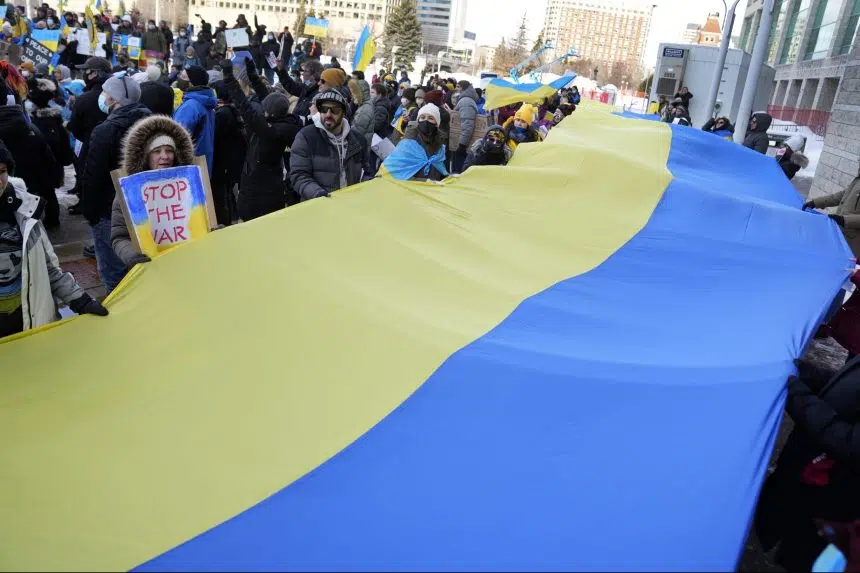Iryna Matsiuk is glued to the news these days, watching for any tidbit about where fighting between Russian troops and Ukrainian defenders is happening.
She moved to Saskatoon 10 years ago but still has family in Ukraine.
“If we hear something on the news — you know, hear some reports of shelling that is close to where our family is — we make sure to let them know because they may not be in bomb shelters. They could still be affected,” Matsiuk told Gormley on Tuesday.
Matsiuk was actually the one who told her family about the war breaking out last Wednesday night, calling her sister and waking up family members when she saw a report on CNN.
Matsiuk’s family members were in cities but have moved to remote areas in western Ukraine for safety, trying to get away from big infrastructure and major highways. Matsiuk said there are 19 people in her uncle’s house, some sleeping on the floor.
“I’m grateful for that because they are in a better position. Babies are born in bomb shelters in Kyiv and big cities. There are many families that are in a worse position,” said Matsiuk.
She also has friends who are still in the cities and “they are sleeping in bomb shelters and subway stations.”
Matsiuk said it’s a humanitarian crisis happening right now, referring to a friend of hers who works at an orphanage in Ukraine.
“My heart breaks … They have babies that are orphans, young babies, they have to be relocated urgently and they need funds,” said Matsiuk.
She said there are people with no access to food and those who can’t get out because they have either no transportation or no fuel.
Matsiuk is co-chair of the Ukrainian Canadian Congress Saskatchewan Ukraine Crisis Response Committee and said they’re trying to ask provincial and federal governments for help.
She said there aren’t any operational programs to be able to bring Ukrainians to Saskatchewan — any of the thousands who fled to neighbouring countries or those who haven’t got out yet.
She said in Saskatchewan, there wouldn’t necessarily have to be a lot of government support for those who came over. She said there’s a strong Ukrainian community here, people and groups are ready to step up, and the committee has even been contacted by Saskatchewan businesses offering jobs.
“What we need is the vehicle. We need the program. We need some kind of well to help bring these people as a set, not necessarily on the government expense,” said Matsiuk.
On Tuesday, the federal government announced it was sending another $100 million in humanitarian assistance to Ukraine. The funding was to help displaced people and to provide emergency health services, including trauma care, shelter, water, sanitation and food.
The Canadian government also announced it was banning Russian-owned or registered ships and fishing vessels in Canadian ports and internal waters.
On Monday, the government said it would send at least 100 portable anti-tank weapons and 2,000 rockets to the Ukraine military.
— With files from The Canadian Press







